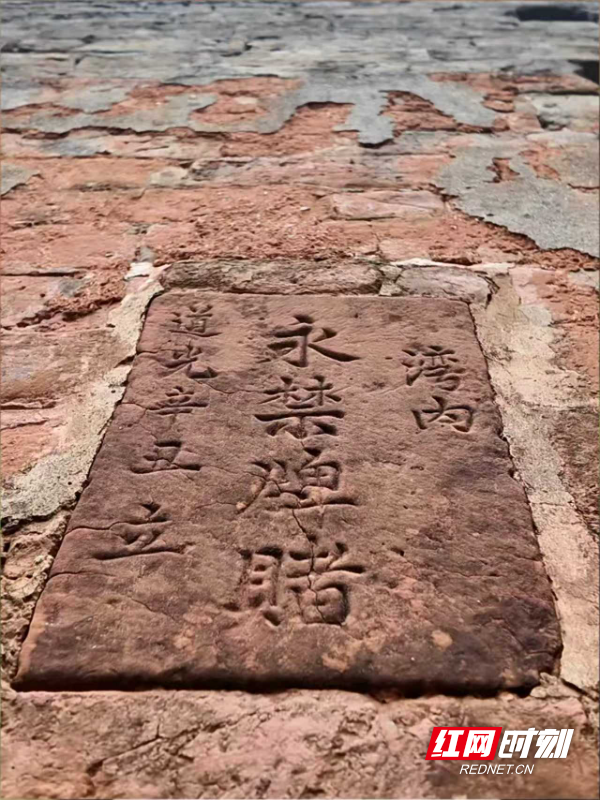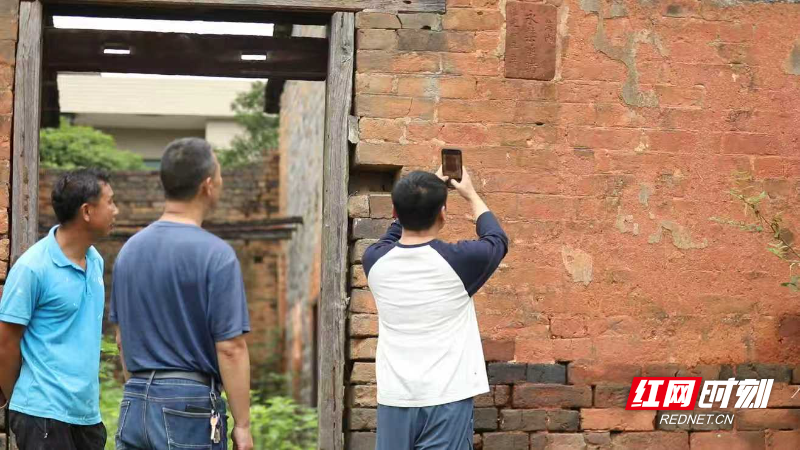A stone engraved with “gambling is prohibited forever in Wannei” from the Daoguang period of the Qing Dynasty was found in Houjun Village of Yonglejiang Town, Anren County on October 20.

It was engraved in 1841, and has become a vivid witness to the inheritance of local virtues and good family traditions through 184 years.
The stone carving is made of red sandstone, about 20 centimeters long and 10 centimeters wide, with the inscription “Year of Emperor Daoguang” (1841).
Li Fujin, the cultural preservation specialist of Anren County Museum, introduced that most of the villagers in Houjun Village are descendants of Ouyang Houjun, a famous minister of the Qing Dynasty and dean of Yuelu Academy.

It is a village rule spontaneously established by local villagers to continue the upright family tradition and emphasis on education of Ouyang Houjun, with the aim of banning gambling and promoting honesty, which reflects the tradition of the Ouyang family's reverence for morality and goodness.
This simple rural regulation still has important practical significance in today’s comprehensive promotion of rural revitalization. The inheritance of good family traditions and the cultivation of simple folk customs remain the cornerstone of rural civilization.
The values advocated by Anren's gambling prohibition stone carving, including staying away from gambling and being frugal, and self-disciplined, still have positive significance for today's rural cultural construction, allowing us to reflect on how to better inherit good family traditions and cultivate civilized rural customs.
Chinese source: rednet







 湘ICP备13003667号
湘ICP备13003667号
